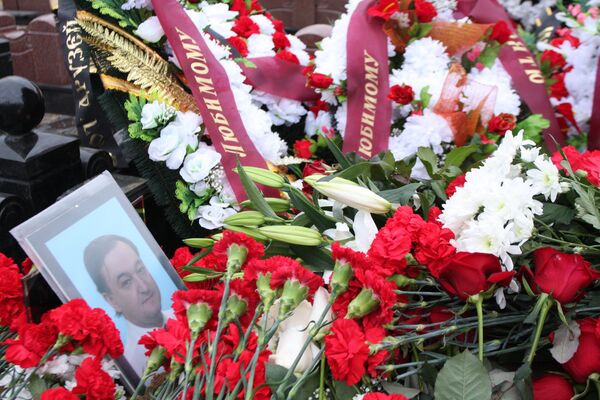The Russian Prosecutor General's decision to reopen the tax evasion case against Sergei Magnitsky, the Russian lawyer who represented the London-based hedge fund Hermitage Capital and died in pretrial detention in late 2009, should be welcomed as a renewed effort to establish the truth. This will benefit people in Russia and in the Untied States because continued ambiguities in the Magnitsky case have already provoked a small crisis in bilateral relations.
Reopening the case was encouraged by the Constitutional Court's decision to prohibit investigative bodies and courts from closing cases due to the death of suspects without the agreement of their relatives. Reopening the case was also prompted by President Dmitry Medvedev's June meeting with members of the presidential Human Rights Council which focused on the Magnitsky case.
Russian officials started acting in earnest only after the United States compiled a blacklist of Russian officials allegedly linked to the death of the lawyer, the first such list in U.S.-Russian relations. Moreover, the foreign bank accounts of 60 case related officials and their families have been frozen, which in turn set the Russian legal machine in motion.
What prevented it from doing this before? Magnitsky died in the Matrosskaya Tishina pretrial detention center on November 16, 2009, and his former employer, Hermitage Capital founder, Bill Browder, immediately raised an alarm in the global media.
Why didn't Russian officials thoroughly investigate the case, bearing in mind that Browder was also on the wanted list? According to the materials in the case opened under the Russian Criminal Code's Article 199, Magnitsky helped Browder evade the payment of 2 billion rubles ($72 million) in taxes.
Who was afraid of exposing the truth? Not Magnitsky's relatives, who have not protested against the reopening of the case even though they will have to answer many unpleasant and painful questions about an individual who was so dear to them. The Russian government and people should be interested in learning the truth too, because 2 billion rubles is not peanuts. If what Magnitsky alleged before his untimely death about law-enforcement officers' complicity in grand larceny is true, the budget could be replenished with still more funds.
It appears that it was the "out of sight, out of mind" approach that prevented the truth from coming out. Officials don't react to foreign or Russian media reports until everyone forgets about the case in question. This has been an effective tactic, but something went wrong in the Magnitsky case.
The prestige of Russian justice has been seriously undermined because of its procrastination in reopening the case. The Prosecutor General's Office analyzed the actions of Magnitsky's investigative officer, Oleg Silchenko, and initiated proceedings against Aleksandra Gauss, the physician in the detention center where Magnitsky died, yet the Magnitsky case was not returned for additional investigation. Russian officials acted like chess players, sacrificing one piece after another instead of changing strategy.
As a result, the U.S. State Department has compiled a blacklist of Russian officials presumably involved in the lawyer's death, imposing visa bans on them and freezing their American assets. If the new bill proposed in late May by a group of U.S. lawmakers led by Senator Benjamin Cardin is approved, the list will grow several-fold to include everyone involved in the unresolved cases of Anna Politkovskaya, Natalya Estemirova and other critics of Putin's regime who are regarded as "martyrs" in the United States.
Cardin has proposed sanctions against "Russian officials who perpetrate human rights abuses and face no accountability."
So, it is the truth and nothing but the truth that should interest both Moscow and Washington if they want to improve bilateral relations. Even if it is proved that Magnitsky evaded taxes on a grand scale, this will not vindicate those who let him die in prison. Society must know if they are guilty or not, because one is never safe from misfortune or trouble, particularly in Russia.
The views expressed in this article are the author's and do not necessarily represent those of RIA Novosti.



